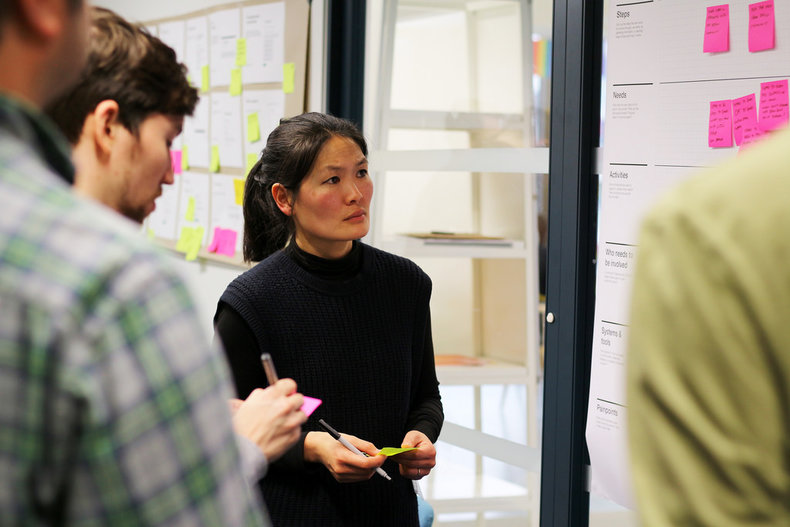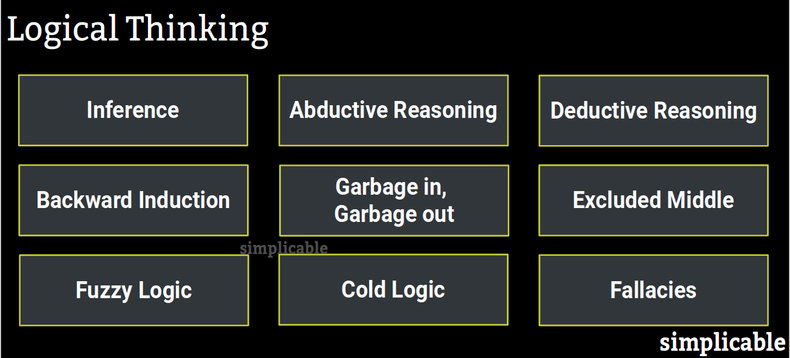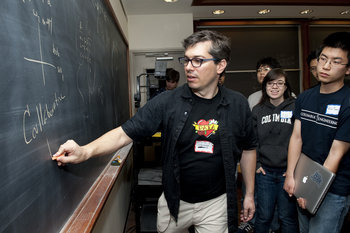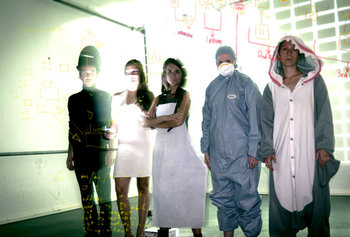

Inference
The process of inferring new facts from known facts.Fact: Paris is a city
Fact: Cities have a mayor or some equivalent
Inferred: Paris has a mayor or some equivalent
Fact: Cities have a mayor or some equivalent
Inferred: Paris has a mayor or some equivalent
Abductive Reasoning
Abductive reasoning is the process of using known facts to develop a hypothesis or theory that may or may not be correct. This is a type of inference that takes a bottom-up approach to logic.Fact: Tomato yield was low last season
Fact: Weather was stable last season
Fact: We increased pesticide use last season
Hypothesis: Increased pesticide use decreased yield
Fact: Weather was stable last season
Fact: We increased pesticide use last season
Hypothesis: Increased pesticide use decreased yield
Deductive Reasoning
Deductive reasoning works from the general to the specific in a top-down approach. This often involves applying first principles that have broad explanatory power.First Principle: Rebooting a machine often resets its state
Problem: Game system is non-responsive
Possible Solution: Reboot it
Problem: Game system is non-responsive
Possible Solution: Reboot it
Backward Induction
Backward induction is the process of starting with possible futures and working backwards to see how each could be achieved.A student has a goal to have a low stress job that pays reasonably well. They identify professions that meet these criteria and then map out the steps that are required to join each profession. This may lead to estimates of cost, risk and difficulty and selection of a realistic path to the student's goals.
Garbage in, Garbage out
Garbage in garbage out is a characteristic of logic whereby incorrect premises lead to invalid logic. All logic is built on top of assumptions known as premises that aren't always incontrovertible fact.Premise: Grey cars have cautious drivers
Observation: Gary drives a grey car
Conclusion: Gary is a cautious driver
Observation: Gary drives a grey car
Conclusion: Gary is a cautious driver
Excluded Middle
Traditional systems of logic only handle true and false such that they can't process grey areas. This is known as excluded middle. Humans are sophisticated enough to handle grey areas such that thinking only in true and false can be considered a bias that might be described as black and white thinking.First Principle: Bad people don't follow the rules.
Observation: Bob doesn't follow the rules.
Conclusion: Bob is bad.
Observation: Bob doesn't follow the rules.
Conclusion: Bob is bad.
Fuzzy Logic
Fuzzy logic is a term for modern systems of logic that can handle grey areas with probabilities. This is more similar to the way that people think whereby they commonly handle exceptions, partial truths and paradoxical truths.Premise: Grey cars often have cautious drivers
Observation: Gary drives a grey car
Hypothesis: Gary might be a cautious driver
Observation: Gary drives a grey car
Hypothesis: Gary might be a cautious driver
Cold Logic
Cold logic is the exclusion of human factors from a human problem. Humans tend to make things complex such that it is tempting to use overly simple logic that excludes human realities. This is tends to be perceived as harsh and unrealistic.Premise 1: Robots compute math more efficiently than humans.
Premise 2: Knowledge can be described with math.
Premise 3: The purpose of life is knowledge.
Premise 4: Efficiency is better than inefficiency.
Conclusion: Humans should be replaced by robots.
The problem with the argument above is that premises 2,3 and 4 are all questionable as they offer a narrow view of things that exclude realities such as the human experience. For example, knowledge of art can't necessarily be described with math.Premise 2: Knowledge can be described with math.
Premise 3: The purpose of life is knowledge.
Premise 4: Efficiency is better than inefficiency.
Conclusion: Humans should be replaced by robots.
Fallacies
A fallacy is an error in logic. These can be remarkably difficult to identify such that logical thinking is improved by developing knowledge of known types of fallacy. For example, an argument from silence whereby it is assumed that a lack of evidence proves the opposite.If politicians were corrupt they would all be in jail.
| Overview: Logical Thinking | ||
Type | ||
Definition | The process of using formal methods of reasoning. | |
Related Concepts | ||
































